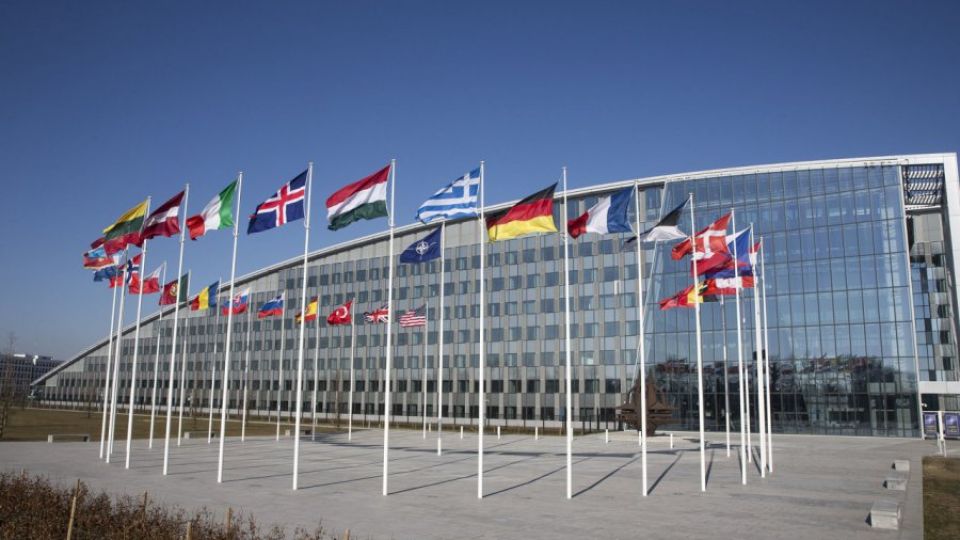December 12, 2023
SEOUL – A delegation of representatives from eight NATO member countries is set to visit Seoul later this week, in a rare collective visit reflecting the transatlantic security alliance’s heightened interest in the Indo-Pacific region amid the ongoing war in Ukraine.
The three-day visit from Wednesday to Friday aims to “engage in discussions on the security situation in the Indo-Pacific region and other pertinent issues,” South Korea’s Foreign Ministry said Monday.
The participating countries are the United States, the United Kingdom, Italy, Denmark, the Netherlands, the Czech Republic, Romania and Poland, according to the ministry.
The NATO ambassadors are scheduled to meet with South Korea’s Vice Foreign Minister Chang Ho-jin on Wednesday. Throughout their visit, they will also meet Defense Minister Shin Won-sik and partake in various events coordinated by the US Embassy in Seoul.
The upcoming meetings between Shin and the NATO ambassadors will “involve an assessment of the security situation on the Korean Peninsula and surrounding areas and center around defense cooperation between NATO and South Korea,” Jeon Ha-kyu, the spokesperson for South Korea’s Defense Ministry, said Monday.
NATO, short for the North Atlantic Treaty Organization, is a security alliance formed during the Cold War as a response to threats posed by the then Soviet Union. Currently, NATO comprises 31 member countries.
The Korea Herald has learned that the upcoming “field trip” was not officially organized by NATO. Instead, the responsibility for coordinating the trip’s itinerary lies with the US Embassy in Seoul.
The collective visit by NATO allies’ representatives is seen as the first of its kind, and aligns with NATO’s increased collaboration with its four Asia-Pacific partners, referred to as AP4, a government source who wished to remain anonymous told The Korea Herald when asked about the implications of the visit.
The AP4 coalition comprises South Korea, Australia, Japan and New Zealand.
“NATO member countries have substantial interest in South Korea and Japan’s stances regarding North Korean nuclear and missile threats, as well as regarding the broader security landscape in Northeast Asia,” the government source said.
“Consequently, the visit by NATO ambassadors to South Korea, alongside their visit to Japan, mainly aims to deepen their comprehension of the situation on the Korean Peninsula, in Northeast Asia and in the Indo-Pacific.”
The inaugural presence of AP4 leaders, including South Korean President Yoon Suk Yeol, at the NATO Summit in 2022 and their subsequent participation in the Vilnius NATO Summit this year underscore NATO’s increasing focus on the Indo-Pacific region.
The focus also falls in line with NATO’s first-ever acknowledgment of challenges posed by China in a joint statement during the 2022 summit. The new “Strategic Concept” emphasizes the significance of the Indo-Pacific region and underscores NATO’s commitment to addressing the “systemic challenges” posed by China to Euro-Atlantic security.
The unnamed government source also explained that NATO members have a “heightened interest in South Korea’s strategy in countering cyber threats emanating from North Korea.”
Cybersecurity stands as a pivotal realm of collaboration between South Korea and NATO. The South Korean military engaged for the first time in NATO’s cyber exercise, the Cyber Coalition, which took place from Nov. 27 to Dec. 1.
The upcoming visit also holds particular significance considering the heightened coordination between South Korea and NATO, which was emphasized with the adoption of the Individually Tailored Partnership Programme during Yoon’s attendance at the NATO summit in Vilnius in July.
The ITPP outlines 11 sectors of collaboration, covering areas such as dialogue and consultation, cooperation in anti-terrorism efforts, disarmament and nonproliferation, emerging technologies, cybersecurity, and public diplomacy. The initiative represents an advancement from the Individual Partnership and Cooperation Programme, which South Korea signed in 2012.
In Vilnius, South Korea and NATO also concurred on enhancing cooperation in military intelligence sharing.
Further strengthening diplomatic ties, South Korea established a Diplomatic Mission to NATO in Brussels in November 2022, enhancing opportunities for political dialogue with the organization.
In a parallel development, a US congressman has introduced the Indo-Pacific Treaty Organization Act, which is aimed at assessing the need for establishing a NATO-esque coalition between the US and like-minded partners in the Indo-Pacific region.
“This legislation will establish a task force to analyze the security situation in the Indo-Pacific and determine whether a NATO-like coalition between the United States and Indo-Pacific partners would be an effective deterrent to aggression emanating from China and North Korea,” said Rep. Mike Lawler, who introduced the bill on Dec. 5.
Lawler highlighted the necessity of the coalition in light of closer alignment among the US’ adversaries, namely China, Russia, Iran and North Korea.
“A collective security agreement has the potential to deter aggression and protect the forces of democracy in the Indo-Pacific,” he said.


